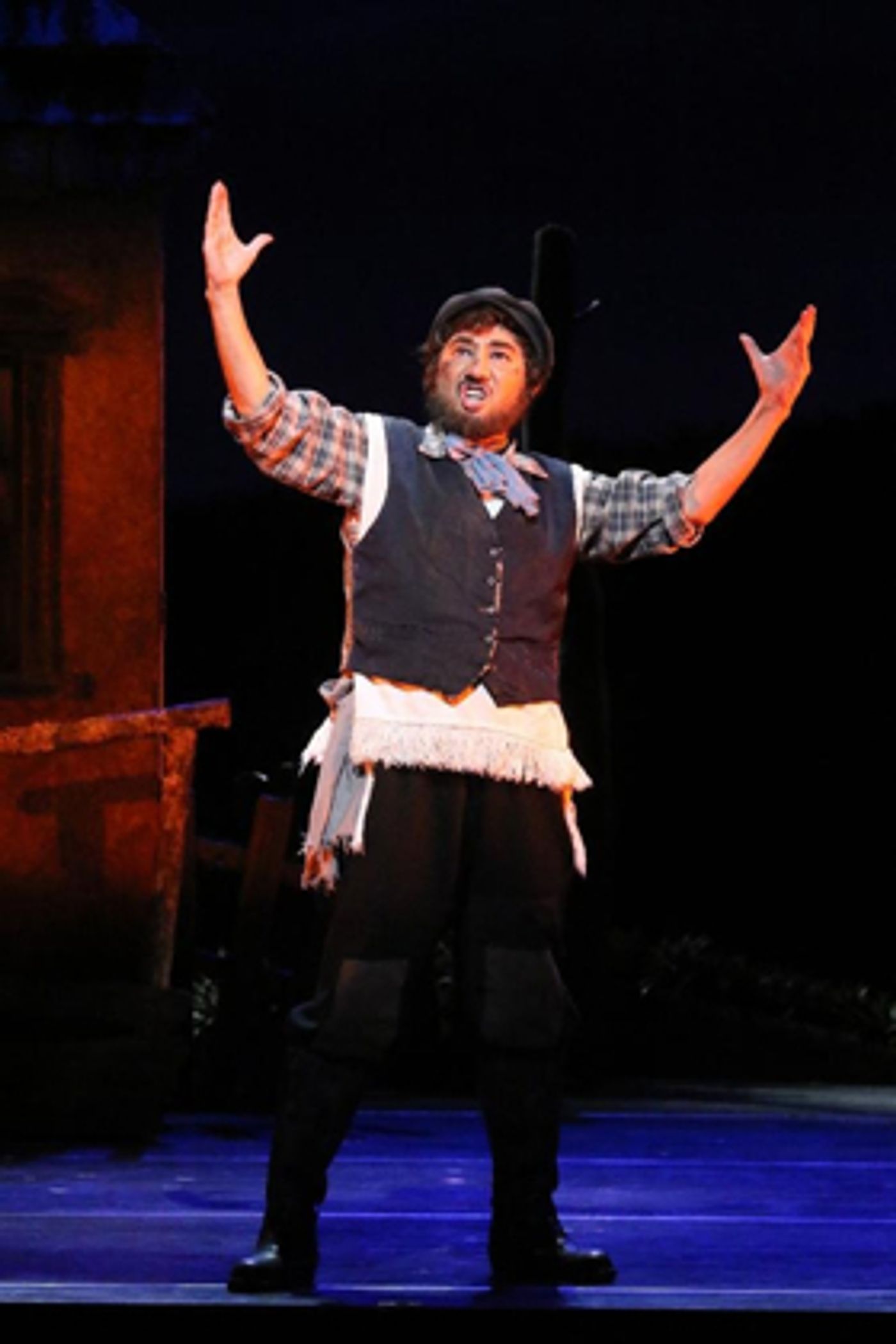Review: Fiddler On The Roof - A Tradition In Japan

This past Hanukkah I witnessed a kind of miracle in modern times: Toho Stage's Fiddler on the Roof, performed in Japanese by an all-Asian company. The quintessential Jewish musical set in Imperial Russia in 1905 and based on "Tevye and his Daughters and other tales" by Sholem Aleichem is about a poor dairyman's attempts to maintain his cultural and religious traditions in a changing world.
The production, which opened on December 5, 2017 in Chiyoda, Tokyo and runs for a three-month National Tour, is as relevant today in Asia as when it opened in 1964 on Broadway. Fiddler made its way to Japan in 1967, and has been produced here over 10 times. The current revival marks its 50th anniversary in Japan. A country devastated by the atomic bomb in World War II and more recently by a horrific earthquake, tsunami and nuclear disaster, the Japanese could identify with the vulnerable villagers of Anatevka, who face universal strife, political unrest, and familial hardship. And the audience receives catharsis at the Nissay Theatre.
In great voice, a charismatic and equally comedic Tevye (Masachika Ichimura) breaks the fourth wall to relay the state of affairs in his Russian shtetl. As "Tradition" resounds, the full company emerges, arms linked at a 90-degree angle, paying homage to Jerome Robbins' signature choreography. Shigeki Majima recreates most of Robbins' original staging but adds his unique stamp to this American music theater classic.
Conducted by Akihiro Shiota, the musicians play with verve and gusto upstage and mostly hidden behind a scrim. The Fiddler (Keiichi Hibino) weaves in and out of the stage pictures. His body language evokes an omniscient presence that moves the plot and theme along. It was mildly distracting, however, to watch Hibino mime rather than produce sound and truly play the fiddle. In a John Doyle (Company, Sweeney Todd) era of actor-musicians, I wonder if this virtuosic standard will take off in future Japanese productions.
Yente (Kohko Arai), the town gossip, provides comic relief with a distinctly scratchy voice. Using playful, bold gestures, Tzietel (Rion Misaki) ignites a sisterly bond with Hodel (Sayaka Kanda) and Chava (Fuka Yuzuki) in "Matchmaker" as the trio playfully sing about their future spouses. Hideomi Terasaki's direction of the youngest sisters, Shprintze and Bielke, is both heartfelt and practical. The two arrive just in time to assist with the set change and also yearn for a similar fate as their older sisters.
While conversing with God, Ichimura owns the stage and delivers an emotionally charged rendition of "If I Were A Rich Man." When Tevye and Lazar (Kiyotaka Imai) meet for a drink at The Inn, Ichimura does an excellent physical and funny routine as he handles props and falls onto furniture. In "To Life," Fyedka (Kyohei Kanda) is a standout vocalist, holding out a long note that won the audience with a grand applause.
Motel (Miyu Irino), the sheepish underdog in love with the eldest daughter, Tzietel, often stutters in Tevye's presence. While tensions mount with Tzietel, Tevye's scarf creates a creative choreographed tug-of-war, rhythmically pushing Motel away and reeling him back in.
Golde (Ran Otori) sets a hilarious tone with loud, open-mouth snoring that sends Tevye over the edge as he plots "The Dream." Dressed in bright colors, the chorus appears as spirits from the grave and they sing "Medetai, Medetai" ("Mazel Tov, Mazel Tov") and move in a syncopated rhythm. Frumah Sarah (Haruko Sonoyama), an impeccable, larger-than-life demon in red, is brilliantly costumed by Miki Oto. Sonoyama, several feet off the ground, commands in fanciful fright and shakes Golde into accepting Tzeitel's union with Motel.
After a moving, teary "Sunrise, Sunset" the pace quickens with a thrilling and precise "Bottle Dance." The dancers were so agile that when one bottle fell from a dancer's hat, it could have been a metaphor to signify human imperfection. Naoki Tanaka built a beautiful wall of flowers to serve as the traditional Hassidic partition between men and women at a wedding. A rebellious and passionate Perchik (Yusuke Hirose) disregards tradition and dares men and women to dance together. In the "Wedding Dance," Msaharu Shinagawa emerges from the orchestra to play his clarinet downstage, lifting the celebration in moving authenticity. The first aggressive signs of a political demonstration abruptly kill the atmosphere and ends Act I.
As Tevye and Golde reconcile their daughters' newfound partners, they reassess their love for one another in "Do You Love Me?" Ichimura and Otori sweetly capture the age-old banter of a married couple, landing in a final pose with their backs to the audience. They exit facing upstage, but playfully wave over their shoulders, and give the audience one last chuckle.
Perchik and Hodel's decision to leave for Siberia challenges the family dynamic as she is struck with ambivalence. A once headstrong and flirtatious Kanda shows a more vulnerable side at the train station. "Far From The Home I Love" is beautifully sung and concludes with a particularly emotional visual of Tevye pushing Hodel out of an embrace and towards her new life.
When the villagers must leave Anatevka and begin their separate journeys, the full company forms a circle, faces inward, and bows to one another, a distinct and common Japanese custom. Some villagers exit while others remain and bow once again. Symbolic of finality, the action is weighted, indicating a troupe of players who take great pride in their work as an ensemble. But the circle they form connotes a global story of tradition, and one I hope continues to find a home wherever it goes.
Review by Mara Jill Herman with translation consultants Hideki Arai, Tadashi Sasaki, and Tomoyo Shoji
Photo credit: Shunpei Tauchi & Eri Iwata
Fiddler On the Roof credits: Book by Joseph Stein; Music by Jerry Bock; Lyrics by Sheldon Harnick; Directed by Hideomi Terasaki; Choreography by Shigeki Majima
For more information, visit Toho Stage.
Reader Reviews

Powered by
|
Videos

